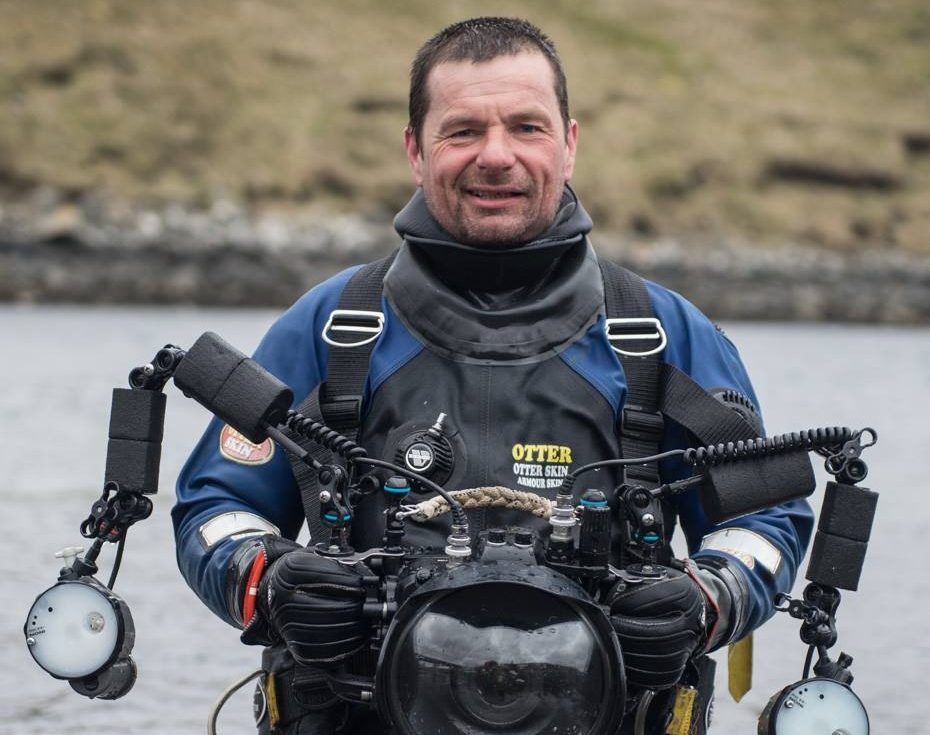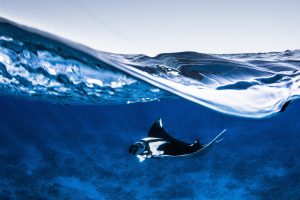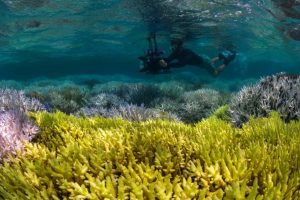A beluga whale has been sighted near Shetland – a rare sighting of the species rarely spotted south of the Arctic Circle, let alone in Scottish waters.
It was award-winning wildlife photographer and scuba diver Richard Shucksmith, who became well-known for his underwater images of diving seabirds, who captured images of the whale using a drone, after being alerted by local whale-watchers’ reports on social media.
“It was great to see it what I assumed to be feeding,” said Shucksmith who, having been snowed in at his home yesterday (18 January), was able to get a lift in a 4×4 up to Hillswick in the north-west of Mainland thanks to staff from local tour company Shetland Seabird Tours.
“The weather conditions were extremely challenging, both for photography and for driving. Let’s hope the beluga stays, as the weather is looking to break this weekend and everyone will get to see it,” he said.

It is only the sixth time one of the white whales has been recorded in Scottish waters, but already the third time in the 2020s. The previous sightings occurred off Unst in 1976, 1997 and 2021, Hoswick in 1996 and Fair Isle last year.
Another whale
Last May Divernet carried the story of a beluga whale known as Hvaldimir that had originally been spotted in northern Norway in 2019 wearing a Russian military harness. This was removed by conservationists, and in 2023 the cetacean reappeared off the Swedish coast, appearing to be making its way south.
The OneWhale team, which has been trying to keep tabs on Hvaldimir, has questioned whether the recent sighting could be of that beluga, but Shetland experts think this unlikely. Some beluga whales are known to wander outside their normal range and are classified as “vagrants”, but it can be that they have become lost or disorientated.
Beluga whales are opportunistic feeders, preying not only on fish but on many species of bottom-dwelling creatures such as cephalopods and crustaceans. They make use of their flexible neck and their ability to deploy both suction and water-jets from their mouth to dislodge prey.
As highly social mammals their natural inclination is to live in pods of a few to several dozen animals, co-operating to catch fish, and although they are at home in pack-ice they would normally migrate together when the Arctic ice freezes over completely.
Richard Shucksmith, a former winner of the British Wildlife Photography Awards and many other competitions, runs Shetland Photo Tours.
Also on Divernet: Hvaldimir the ‘spy’ beluga dashes for Sweden, Beluga speaks dolphin to fit in, Beluga fails to survive despite rescue bid, Dolphins guard Russian warships against divers



